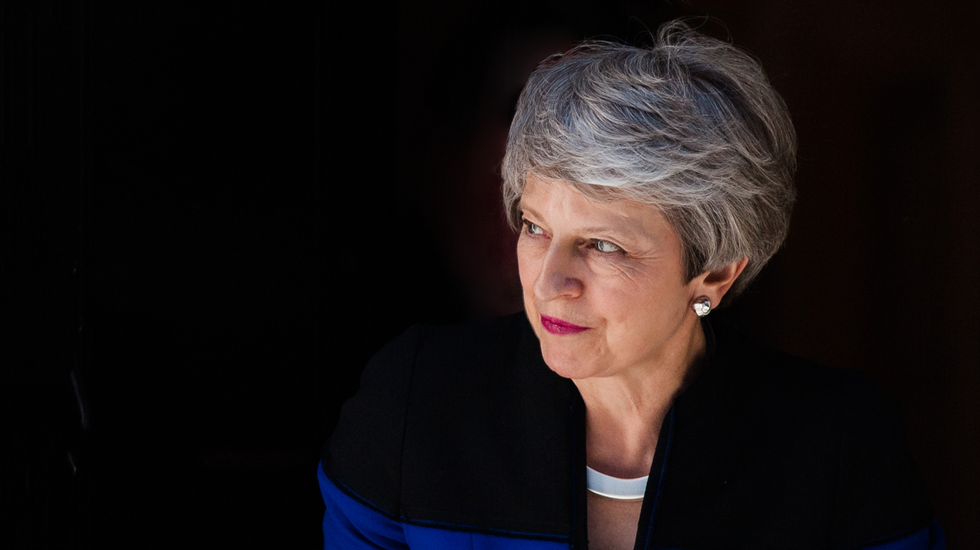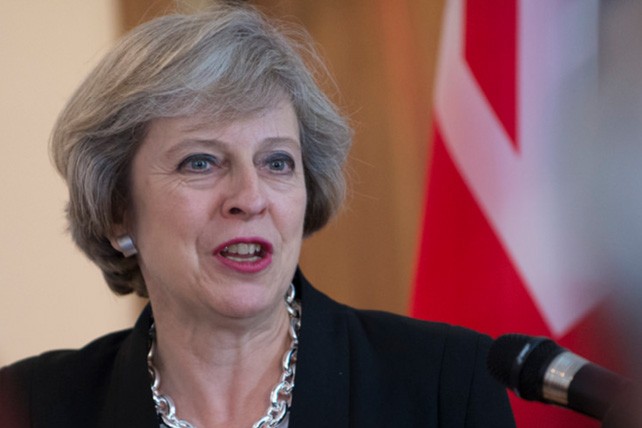By Ben Kerrigan- And Lucy Caulkett-
Former Prime Minister Theresa May’s announcement of her decision to step down as a Member of Parliament (MP) at the next general election signals the end of a storied political career that spans nearly three decades.
May, who represented the Maidenhead constituency in Berkshire for 27 years, cited a variety of factors influencing her departure from parliamentary duties, echoing the diverse reasons why other MPs may choose to step down..
She said her work on modern slavery and human trafficking is taking up much of her time.
Over the years, MPs often find themselves pulled between their parliamentary responsibilities and personal aspirations.
For May, her increasing involvement in causes such as combatting modern slavery has evidently become a priority, necessitating a shift away from frontline politics to dedicate more time and energy to these endeavors.
This aligns with a common trend among MPs who seek to pursue new opportunities or engage in philanthropic activities after serving in public office for an extended period.
Moreover, May’s decision may also reflect her assessment of the evolving political landscape and her role within it.
As a former Prime Minister, May undoubtedly carries significant experience and expertise, yet the dynamics of party politics and the broader socio-political context may have influenced her decision to step down.
The challenges she faced during her tenure, particularly in navigating the complexities of Brexit and managing internal party divisions, could have contributed to a sense of fatigue or disillusionment with the parliamentary process.
Ms May said: “Since stepping down as prime minister I have enjoyed being a backbencher again and having more time to work for my constituents and champion causes close to my heart, including most recently launching a Global Commission on Modern Slavery and Human Trafficking.
“These causes have been taking an increasing amount of my time.
“Because of this, after much careful thought and consideration, I have realised that, looking ahead, I would no longer be able to do my job as an MP in the way I believe is right and my constituents deserve.
The first female prime minister since Maggie Thatcher, her leadership was initially welcome by feminists and those hoping she could follow in the footsteps of the iron lady.
Like Thatcher, she had presided over a tough immigration policy as Home Secretary, and appeared to be very strong after taking Boris Johnson expected prime ministerial spot after the former prime minister shot himself on the foot by not making some of his colleagues feel included if h were given the vote.
A confident speaker, she seized every opportunity to deride Johnson and cut a confident female leader’s role.

Theresa May will step down at next elections due to other commitments
Eventually, opposition to her proposed Brexit deal led to Conservative MPs holding a confidence vote in her leadership, and although she survived, her authority was diminished and she announced her resignation in a tearful speech five months later.”
She returned to the backbenches from where she was a vocal critic of her successor Boris Johnson before he was forced out of Downing Street in 2022.
Mrs May’s announcement brings to 95 the total number of MPs who say they will be standing down at the next election.
The list includes former ministers Matt Hancock, Dominic Raab, Ben Wallace, Sajid Javid, Kwasi Kwarteng and Chris Grayling.
This sentiment resonates with other MPs who may feel disillusioned with the current state of politics or perceive limited opportunities for meaningful impact within the confines of Westminster.
Additionally, May’s announcement comes amidst a broader trend of MPs across party lines choosing to retire from politics or pursue alternative career paths.
The decision to step down often reflects a culmination of personal and professional considerations, including factors such as age, health, family commitments, and the desire for a better work-life balance.
For May, who is 67 years old, the decision to step down may also be influenced by a desire to transition into a new phase of life, free from the demands and pressures of public office.
Furthermore, May’s departure from frontline politics raises questions about the future leadership of the Conservative Party and the broader implications for the UK’s political landscape.
Her decision to step down as an MP adds to a growing number of MPs who are not seeking re-election, highlighting the need for renewal and rejuvenation within political parties.
They includes former ministers Ben Wallace, Sajid Javid Matt Hancock, Dominic Raab, James Duddridge, Kwasi Kwarteng and Chris Grayling., making 95 altogether.
The next election is expected to be dramatic, with many observers predicting a Labour take over, despite the party’s lack of success in past elections.
On international women’s day, it is worth stating that Theresa May is a woman who has accomplished what many men can only dream of, let alone achieve. She will continue to have influence of sorts behind the scenes in politics and many other areas of life.
May her future engagements go according to plan.




